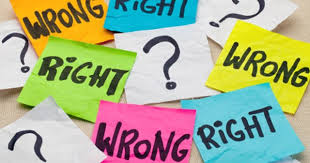Confession, Climate Change and Asylum Seekers

We held our Autumn Day of Reflection last month at the Good Shepherd Parish centre in Mytholmroyd. We are very grateful to the church community there for their welcome and their practical support during the day. About half of the 23 participants came from the local area. This is a vindication of our attempts to take such events to different parts of our widespread diocese.
Part of our day ended up being quite an in-depth discussion about the sacrament of reconciliation. I don’t think that was the intention- but it was what happened, and it certainly animated everyone. We reflected about the way in which the sacrament is typically administered (one on one, usually in a confessional box) and how this is inadequate for our developing understanding of the Gospel messages about forgiveness and our understanding of sin. Here are my personal thoughts arising out of that discussion.
 Someone brought up ‘sins of omission’ – what haven’t we done or what have been the consequences of our inaction (always a popular topic with Catholics as we like to beat ourselves up). The crux of the matter is that, by and large, examinations of conscience are totally geared around ‘personal’ sin: have I murdered someone, committed adultery with someone, stolen something etc. I daresay they do exist, but I have not come across an examination of conscience that asks what we haven’t done that has contributed to the destruction of God’s creation, what haven’t we done to challenge the Government’s ‘Hostile environment’ policy towards strangers to our country, what we haven’t done to encourage dignity in family life by challenging public policy that ensures more
Someone brought up ‘sins of omission’ – what haven’t we done or what have been the consequences of our inaction (always a popular topic with Catholics as we like to beat ourselves up). The crux of the matter is that, by and large, examinations of conscience are totally geared around ‘personal’ sin: have I murdered someone, committed adultery with someone, stolen something etc. I daresay they do exist, but I have not come across an examination of conscience that asks what we haven’t done that has contributed to the destruction of God’s creation, what haven’t we done to challenge the Government’s ‘Hostile environment’ policy towards strangers to our country, what we haven’t done to encourage dignity in family life by challenging public policy that ensures more
and more families are having to resort to food banks to feed their children. Or, to take the issue that gets most space in the media, what systemic problems enabled priests to abuse children on the scale that we now know?.I’m no theologian but I think these latter examples relate to what is termed ‘structural’ sin. My understanding of this is that these are sins where, as a community, we have colluded (either through our actions or lack of action) to create systems and policies in our country which harm God’s creation or are affronts to the dignity of the human person. Given the communal nature of these sins it seems to me counter-productive to talk about them in a situation of individual confession. These are communal sins, so they need to be aired in a communal context. Equally, a communal penance would be more appropriate, it seems to me.
Another element of this (and all the more reason for them to be considered in a communal context) is that such sins are more difficult to define. I’ve picked some examples which I think are clearly structural sins. Jesus’s attitude, and that of the Church down the ages, has been one of welcome to strangers., for example. So, the creation of a ‘hostile environment’ is patently sinful. I’m sure some would argue with this position – but I think they would have a difficult time with Jesus about it.
Other situations are not so clear cut. Is Universal Credit inherently a sinful system? I don’t know, but I do know that there are elements to this system that are contrary to the dignity of the human person and there is growing evidence that where it is rolled out then more and more families end up living in poverty. Again, this calls for communal discussion and discernment – what, as a community do we think about these situations and what, as a community, should we be doing about them?
I have not come across any guidance about this at an institutional church level nor any church communities that do this sort of communal examination of conscience on a regular basis. The only thing that comes to mind is the work of Ernesto Cardenal and his book ‘The Gospel in Solentiname’ in which are described meetings of his church community coming together to reflect on the Gospels of the day and the meaning of it in their own lives. But that was published over 30 years ago and in a very different context to our own.
Is it all just too difficult for the institutional church? We do not have a healthy practice of dialogue between both church community members and church communities and clergy. ‘The Church is not a democracy’ is a defence that is heard quite often. However, that is no excuse for not having true dialogue between people to discern our communal sinfulness and ways of making reparation for it. There are signs of hope, but we need to get to a better place in relation to communal reflection (and out of this reflection, penitential action) before the damage to God’s creation is irreversible.
*****************************************
